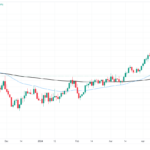
Saudi Arabia is starting to panic, and is growing concerned that the growing number of supply disruptions around the world could cause oil prices to spike. Saudi Arabia is moving quickly to head off a supply crunch, aiming to dramatically ramp up production to a record high 11 million barrels per day in July, according to Reuters.
The increase, if it can be pulled off, would be an incredibly rapid ramp up in output, up more than 1 million barrels per day (mb/d) from May levels.

How this plan fits into the latest OPEC+ deal remains to be seen. It was only a few days ago that Saudi Arabia and its coalition partners said that they would add 1 mb/d of supply back onto the market, with many of them acknowledging that, in reality, the figures would be closer to 600,000 bpd because of the inability of so many producers to ratchet up output.
As such, the addition of 1 mb/d from Saudi Arabia alone would lead to the OPEC+ group exceeding the production levels they just committed to, after factoring in additions from Russia and other Gulf States.
However, the surge in output does not need to exported, at least not right away. Saudi Arabia could divert extra barrels into storage. Moreover, higher output is needed during summer months anyway because the country burns oil for electricity, which spikes amid hot summer temperatures. So some of the extra production will be consumed domestically.
Still, an industry source told Reuters that the increase in output “will go to the market,” although the details are unclear. Bloomberg reports that shipments from Saudi Arabia to Aramco’s overseas storage facility in Egypt have already been on the rise this month.
“We already mobilized the Aramco machinery, before coming to Vienna,” Saudi oil minister Khalid al-Falih said over the weekend.
The dramatic ramp up in production suggests that Riyadh wants to prevent prices from rising too much. Producing at 11 mb/d will help offset the outages in Libya, Venezuela, Nigeria, Canada and Iran, but it might not be enough. The U.S. State Department said on Tuesday that Washington would take a hardline towards countries importing Iranian oil. The Trump administration expects countries to zero out Iranian oil imports by November 4, and the State Department said it would be unlikely that anyone would be granted a waiver.















